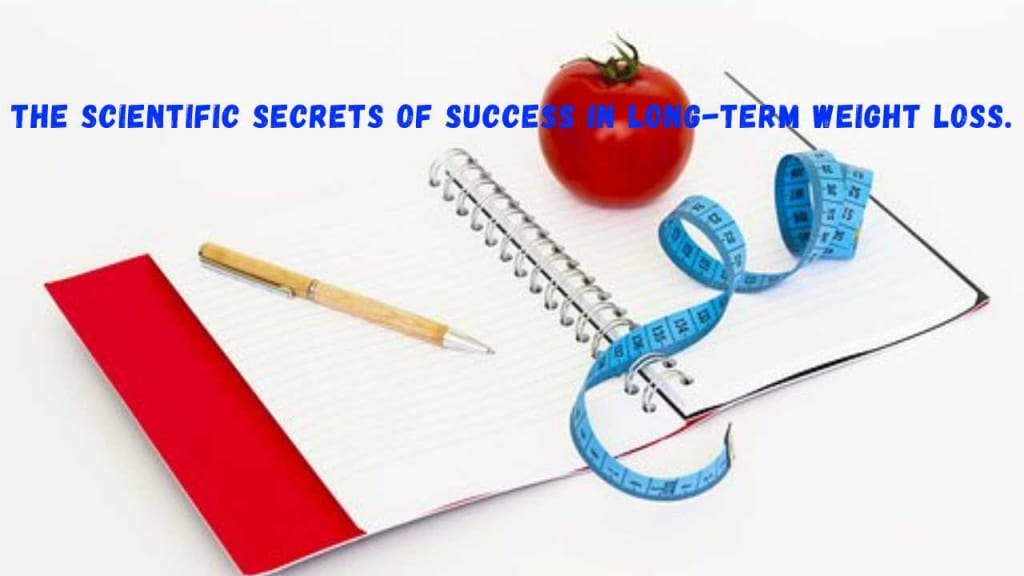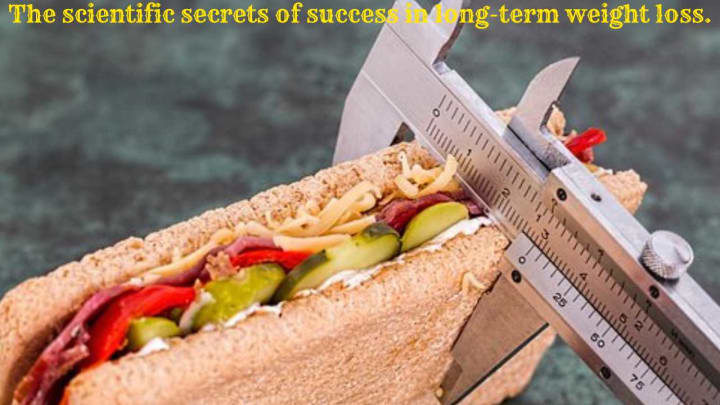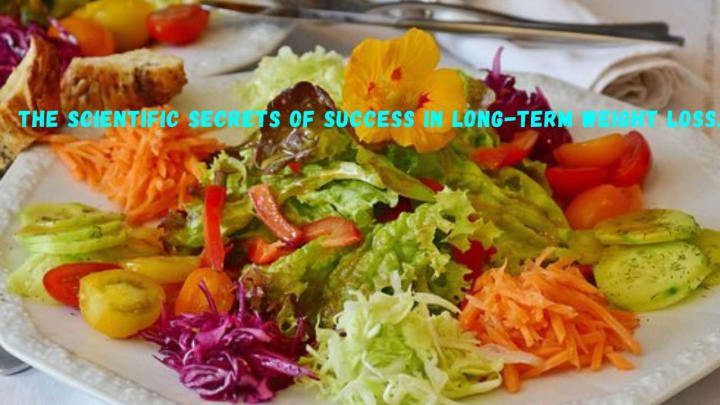The scientific secrets of success in long-term weight loss.
weight loss

For many people, losing weight is a lifelong goal. The challenge is that maintaining the weight loss is much harder than losing it in the first place.
There are a few scientific secrets of success in long-term weight loss that can help make the process easier.
One secret is to make sure you are eating a balanced diet and getting enough exercise.
Eating healthy foods and exercising regularly will help you lose weight and keep it off.

The pros of weight loss through scientific secrets of success in long-term weight loss include:
1. The ability to maintain weight loss over time.
2. The possibility of achieving permanent weight loss.
3. The potential for reducing the risk of heart disease and other chronic illnesses.
4. The ability to improve overall health and well-being.
5. The potential for decreasing stress levels and improving morale.
The cons of weight loss through scientific secrets of success in long-term weight loss include:
1. The need for dedication and consistent effort.
2. Frequent monitoring and adjustment may be necessary to ensure optimal results.
3. Weight loss may be difficult to achieve if motivation flags.
4. It is possible to become discouraged if progress is slow or setbacks occur.

What is the scientific evidence that supports success in long-term weight loss?
There is a great deal of scientific evidence that supports the success in long-term weight loss.
One study that looked at data from over 100,000 participants found that those who maintained their weight over time were more likely to be successful than those who gained weight.
Additionally, research has shown that people who are more physically active are more likely to maintain their weight over time.
In fact, one study found that for every 10% increase in physical activity levels, there was a 5% decrease in the chances of gaining weight or becoming obese.
The Five Principles of Weight Loss: What is science telling us about how to lose weight and keep it off?
Science has long been known for its ability to elucidate the principles of weight loss and keep it off. In this article, we will take a look at five principles that have been scientifically proven to work in aiding weight loss.
We will explore how these principles can be put into practice and help you achieve your desired results!
1) Eat Less: One of the most fundamental principles of weight loss is reducing caloric intake.
When you consume fewer calories than your body requires, your body begins to burn stored fat instead.
This is why it is so important to track your caloric intake and make sure you are eating enough but not too much.
2) Exercise: Contrary to popular belief, exercise does not just help people lose weight; it helps them keep it off as well!

The Science of Calories in vs. Calories Out: How do you control your caloric intake to achieve long-term weight loss?
How do you control your caloric intake to achieve long-term weight loss? According to the National Weight Control Registry, people who have maintained a 40-pound weight loss for 5 years or more consume an average of 1800 calories per day.
That’s 400 fewer than the average person consumes and it’s all thanks to making smart choices about what they eat.
If you want to lose weight, you need to be aware of how many calories you are consuming and burning each day, and make sure that your total caloric intake is lower than your calorie burns.
Here are some tips on how to control your caloric intake:
1) Calculate your basal metabolic rate (BMR). This is the amount of energy that you expend at rest. You can find out your BMR by using a calculator like the one available here.

Exercise: How much, how often, and what are the best types of exercise for weight loss?
Exercise is one of the most important things you can do for your health, and weight loss. It’s been proven that regular exercise helps reduce body fat, improves heart health, and reduces risk factors for chronic diseases.
The best way to lose weight is by incorporating exercise into your daily routine. There are a lot of different types of exercise, so find what works best for you and stick with it! Here are three tips to help you get started:
1) Start with small amounts of exercise. If starting from scratch, try doing 10 minutes of aerobic activity such as brisk walking or biking at a moderate pace.
2) gradually increase the amount of time you spend exercising over time. Aim to work up to 30 to 60 minutes per day, five days per week.
3) choose activities that appeal to you.

Food Choices: What should you eat to lose weight and maintain your new weight?
If you're looking to lose weight and keep it off, there are a few key food choices you'll want to make.
Eating healthily is the key to success, but making sure you're getting the right amount of nutrients and calories is also important.
While it's impossible to provide a definitive guide to weight loss, following these tips can help:
- Eat plenty of fruits and vegetables. These foods are packed with fiber, vitamins, and minerals which help regulate your body's metabolism and keep you feeling full longer.
They're also low in calories so you can indulge in them without adding extra pounds to your frame.
- Avoid processed foods. These contain high levels of sugar, salt, and unhealthy fats which will only contribute to your weight gain problem. opt for fresh produce instead, especially if you're watching your calorie intake.

Mind Over Matter: How do you make healthy choices when eating out, grocery shopping, and preparing food?
Healthy eating is a top priority for many people, but it can be difficult to make good choices when dining out or grocery shopping. To help you make the right choices, here are 8 tips for mind over matter:
1. Make a list before you go shopping or dining out. This will help you remember what ingredients are good for your diet and what to avoid.
2. Stick to familiar foods when possible. When you eat out, choose restaurants that you know have healthy menu items. And when grocery shopping, stick to brands and items that you know are healthier than others.
3. Balance your meals with plenty of fresh fruits and vegetables. Eating these foods will provide essential vitamins and minerals as well as fiber and antioxidants that can help promote weight loss.
4. Avoid processed foods whenever possible.
Conclusions
In conclusion, the scientific secrets of long-term weight loss are not as complex as many people believe.
A combination of sensible eating and regular physical activity is the key to success.
Make sure to keep your goals in mind, set realistic expectations, and be patient while you work towards your weight loss goals.
About the Creator
Digital World Earn
I am a master in the art of blocking, a wordsmith of the finest SEO content, and a connoisseur of all things luxury. Allow me to sweep you away into the world of lavishness with my exceptional writing skills and ruthless blocking techniques






Comments
There are no comments for this story
Be the first to respond and start the conversation.